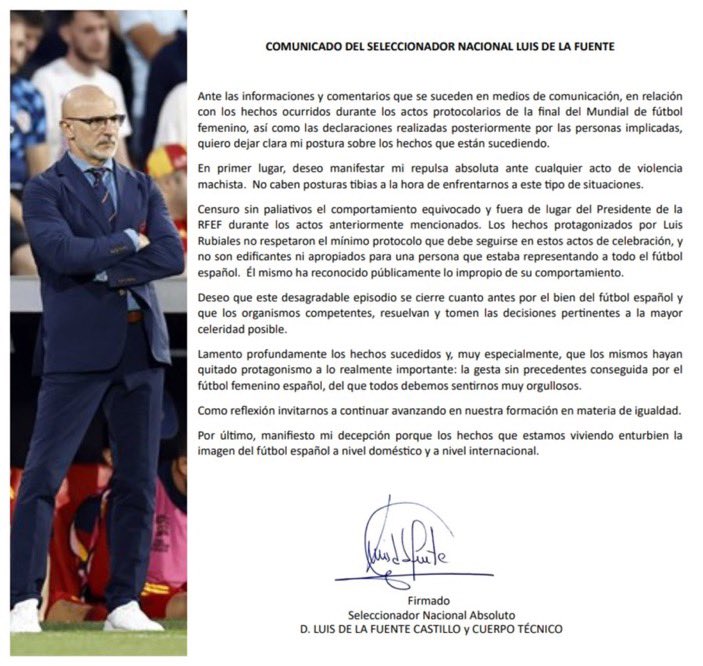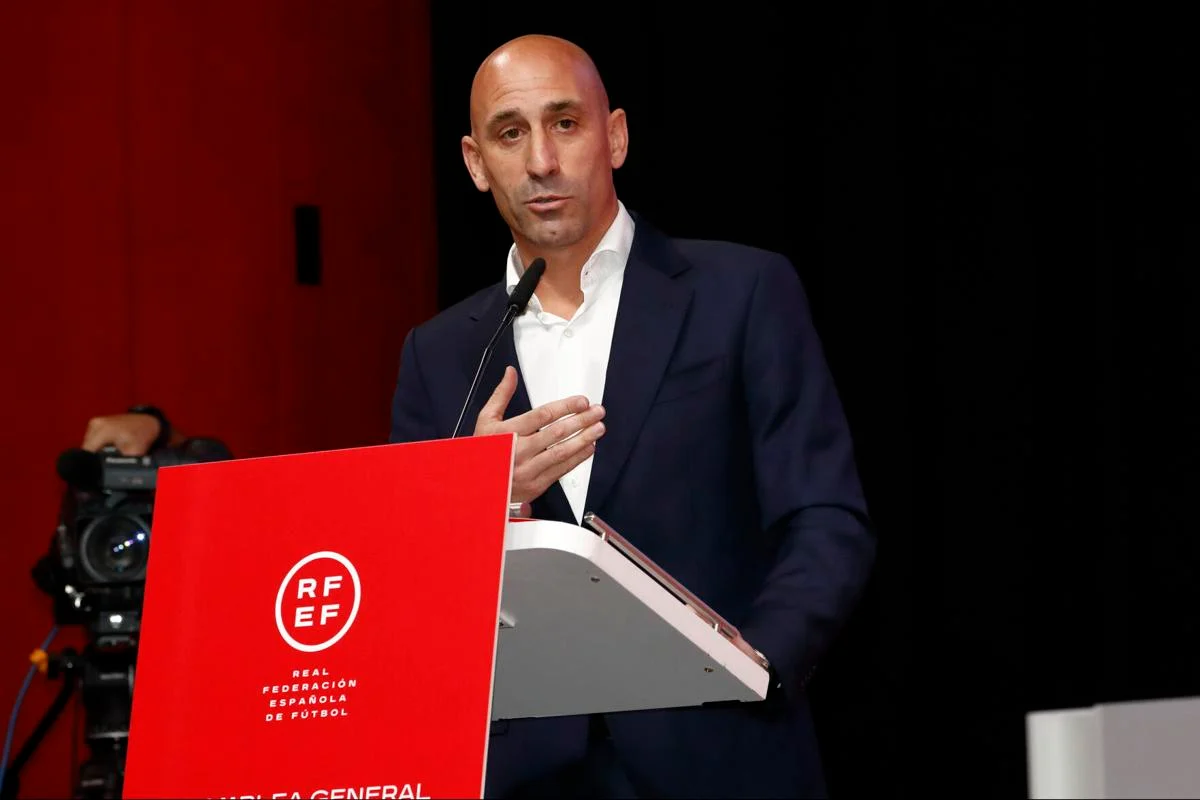Spain’s triumphant World Cup-winning coaching staff, with the exception of manager Jorge Vilda, have tendered their resignations amidst a growing scandal involving Luis Rubiales, the president of the Spanish Football Association (RFEF). Assistant managers Montse Tome, Javier Lerga, and Eugenio Gonzalo Martin, as well as physio Blanca Romero Moraleda and goalkeeping coach Carlos Sanchez, have all stepped down from their roles. This unexpected wave of departures also extends to six other individuals associated with various age levels within the national team structure.
The cause of this mass exodus stems from the actions of Luis Rubiales, who was suspended by Fifa following his contentious behavior at the Women’s World Cup final victory celebration over England. Rubiales had kissed Spanish forward Jenni Hermoso on the lips, an act that stirred significant controversy and prompted swift repercussions. The coaching staff, in a united statement, condemned Rubiales’ behavior and cited his “unacceptable attitudes and statements” as the reason for their decision to resign from their positions.
Luis de la Fuente, head coach of Spain’s men’s team, also weighed in on the issue, criticizing Rubiales for failing to adhere to the proper protocol for celebratory events. De la Fuente highlighted the inappropriateness of Rubiales’ behavior, emphasizing its incongruity with the representative role he held within Spanish football.

Amidst the turmoil, Rubiales adamantly refused to step down from his post, causing further tension within the Spanish football landscape. The RFEF announced its intention to initiate legal action against Hermoso’s claims, setting the stage for a legal battle in addition to the ongoing public relations crisis.
Jenni Hermoso, the central figure in this controversy, vehemently rebuffed Rubiales’ defense, asserting that the kiss was non-consensual and that no such conversation he referred to ever took place. Her statement portrayed her as a victim of Rubiales’ impulsive and inappropriate behavior, raising broader questions about the boundary between personal and professional conduct.
In a striking show of solidarity, a significant number of Spanish players, including all members of the squad who participated in the Women’s World Cup, announced their decision not to play for Spain’s women’s team until Rubiales vacated his position. This collective action was framed as a Spanish football counterpart to the global MeToo movement, advocating for accountability and change in the face of misconduct.
The situation escalated further when the Spanish government became involved, initiating legal proceedings aimed at suspending Rubiales. The Secretary of Sport emphasized a desire for this controversy to serve as a turning point for Spanish football’s handling of such issues.
Responding to the mounting pressure, Fifa took provisional measures by suspending Rubiales from all football-related activities at the national and international levels. This decision illustrated the gravity of the situation and the need for a thorough investigation into the matter.
The climax of this unfolding drama came with the announcement of a mass resignation by coaches at various levels of the Spanish football system, who expressed their strong disapproval of Rubiales’ conduct. This bold action highlighted the collective commitment to upholding professional standards and ethical conduct within the sport.
As the fallout from this controversy continues to reverberate, Spain’s football community finds itself at a crossroads, grappling with issues of accountability, personal boundaries, and the role of leadership in preserving the integrity of the game. The resignations of the coaching staff serve as a stark reminder that actions have consequences, even at the highest echelons of the sport.




